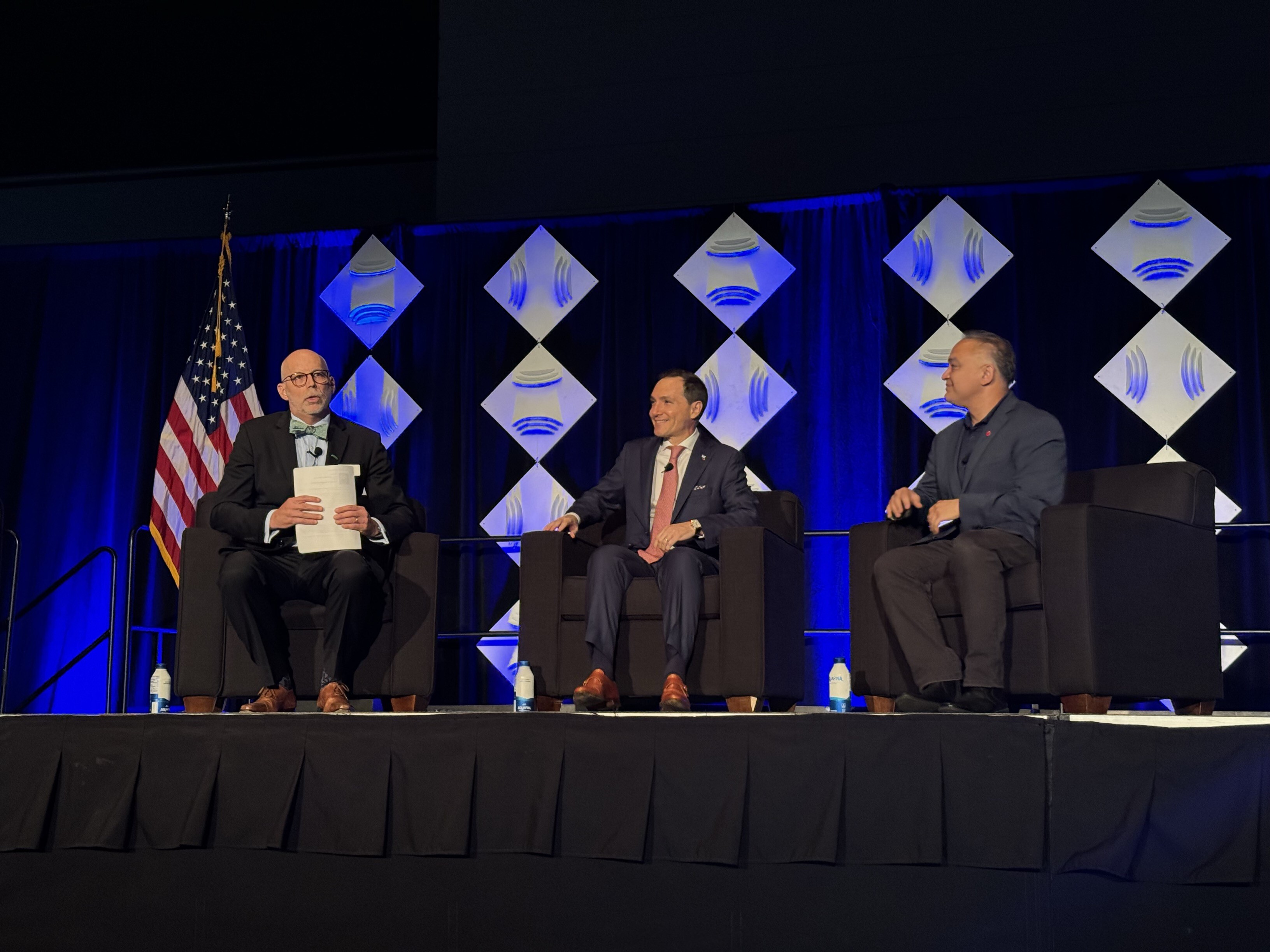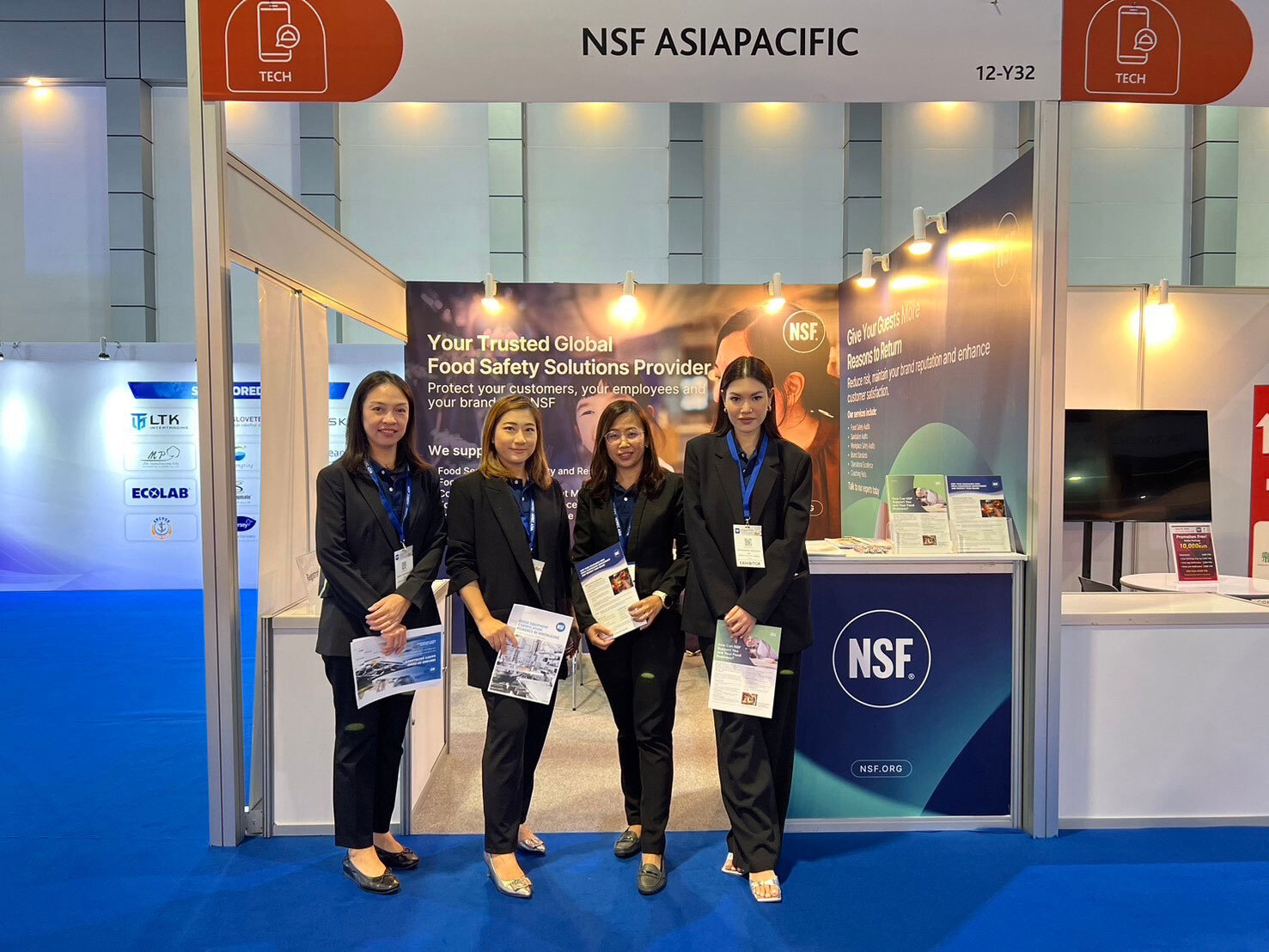NSF Is Doing Everything It Can to Prevent Legionella Outbreaks
We have updated this statement. Read the new statement.
NSF is a global, not-for-profit organization operating in many different capacities to protect and improve human health. Ethics and integrity are at the core of what we do, whether facilitating the development of public health standards or providing services to protect and improve human health around the world. NSF’s Standards Development Organization, which is accredited by the American National Standards Institute (ANSI), is currently facilitating the development of a public health standard called NSF 444: Prevention of Injury and Disease Associated with Building Water Systems. This standard addresses many of the dangers associated with Legionella and other pathogens in building water systems. As an ANSI-accredited Standards Development Organization, NSF brings together academia, regulators and industry to develop consensus-based standards that protect public health.
While most people know NSF as a standards developer, that’s only part of what we do. NSF also offers testing, certification, auditing, advisory and training services. NSF and many other similarly structured organizations that operate SDOs develop standards and provide public health services. With over 25,000 cases of legionellosis and over 4,000 deaths each year in the United States alone, we believe there is a need for both clearly defined standards and a larger number of service providers in this area. In fact, NSF has a public health responsibility to do all it can to address this issue and save lives. NSF is structured to do both without a conflict of interest and ANSI affirms this dual role.
Here’s an excerpt from a recent letter from Anne Caldas, Senior Director, Procedures and Standards Administration at ANSI. We encourage you to read the letter in its entirety.
“NSF’s standards development procedures currently meet ANSI’s essential requirements for openness, balance, consensus and due process. ANSI's procedures also include section 3.2 Commercial terms and conditions, which applies to all American National Standards. We have found that NSF consistently adheres to the requirements and procedures that govern the American National Standards development process. As a result, NSF’s standards development division has effectively maintained its status as an ANSI-accredited Standards Developer and holds the special status of ANSI Audited Designator.
NSF has been both an ANSI-accredited Standards Development Organization and an ANSI-accredited Certification Body for decades. ANSI has conducted numerous, but distinct, audits of NSF’s standards development and certification activities. Many organizations are engaged in both standards development and professional services, including certification. In fact, ANSI accredits dozens of organizations involved in both standards development and conformity assessment activities, and ANSI's accreditation program requirements do not preclude these dual roles. Each ANSI accreditation program is bound by its unique procedures and neutral oversight.”
Despite clear support for NSF’s dual role, several individuals have voiced concerns about NSF’s recent announcement of an agreement with a building water services provider. This non-exclusive professional services agreement between NSF’s Water Services program and Homeyer Consulting enables the two organizations to work together to assist health care facilities with hazard assessments, inspections, and/or testing to control Legionella in their water systems.
One point is important to repeat: The non-exclusive agreement is between NSF’s Water Services program and Homeyer Consulting, not between NSF’s Standards Development Organization and Homeyer. NSF’s Water Services program has worked with other organizations in similar ways, including some of the individuals now criticizing the latest agreement.
As we’ve said before, NSF’s Water Services program will consider working with any organization that is committed to protecting and improving human health.
We have listened carefully to these concerns and spoken with the NSF 444 Joint Committee and the ASHRAE 188 Committee to answer their questions. During those conversations, we’ve shared the above information as well as the following important points.
- NSF’s structure: NSF is not a government agency, not financially supported by government, and does not conduct fundraising campaigns. NSF conducts both not-for-profit and for-profit activities. Like many not-for-profit organizations, the revenue generated by NSF’s for-profit activities is taxed appropriately and reinvested in the organization to help fund NSF’s not-for-profit operations.
- Multiple accreditations and oversight to prevent conflicts of interest: NSF’s Standards Development Organization is accredited by ANSI and the Standards Council of Canada. Accreditation means NSF’s Standards Development Organization meets the essential requirements for openness, balance, consensus, transparency and due process. In order to maintain ANSI accreditation, standards developers are required to consistently adhere to a set of requirements or procedures that govern the consensus development process. This includes rigorous audits and oversight to prevent conflicts of interest.
- Open and public standards: NSF 444, which is under development, will be an open and public standard, which means any advisory or certification body will be able to use the standard and any advisory firm will be able to provide guidance based upon it.
NSF remains committed to protecting and improving human health. Standards development is one of the ways NSF protects and improves human health, but it’s not the only way. As a global public health organization, NSF will continue to provide services related to important public health issues such as building water health, water quality, food safety, environmental health and sustainability.
Share this Article
How NSF Can Help You
Get in touch to find out how we can help you and your business thrive.

What’s New with NSF

NSF Shanghai Named Critical Site for NSF/ANSI 455 and NSF/ANSI 173 by ANSI National Accreditation Board
July 26, 2024
NSF Takes Center Stage at NEHA Annual Education Conference
July 25, 2024
NSF Asia Pacific Showcases Hospitality Solutions at THAIFEX HOREC Asia 2024 in Bangkok, Thailand
July 4, 2024